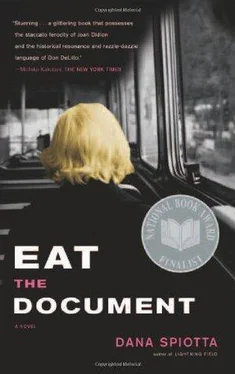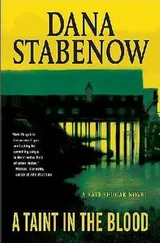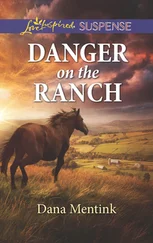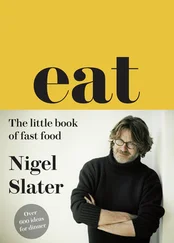Dana Spiotta - Eat the Document
Здесь есть возможность читать онлайн «Dana Spiotta - Eat the Document» весь текст электронной книги совершенно бесплатно (целиком полную версию без сокращений). В некоторых случаях можно слушать аудио, скачать через торрент в формате fb2 и присутствует краткое содержание. Год выпуска: 2006, Издательство: Scribner, Жанр: Современная проза, на английском языке. Описание произведения, (предисловие) а так же отзывы посетителей доступны на портале библиотеки ЛибКат.
- Название:Eat the Document
- Автор:
- Издательство:Scribner
- Жанр:
- Год:2006
- ISBN:нет данных
- Рейтинг книги:3 / 5. Голосов: 1
-
Избранное:Добавить в избранное
- Отзывы:
-
Ваша оценка:
- 60
- 1
- 2
- 3
- 4
- 5
Eat the Document: краткое содержание, описание и аннотация
Предлагаем к чтению аннотацию, описание, краткое содержание или предисловие (зависит от того, что написал сам автор книги «Eat the Document»). Если вы не нашли необходимую информацию о книге — напишите в комментариях, мы постараемся отыскать её.
shifts between the underground movement of the 1970s and the echoes and consequences of that movement in the 1990s. A National Book Award finalist,
is a riveting portrait of two eras and one of the most provocative and compelling novels of recent years.
Eat the Document — читать онлайн бесплатно полную книгу (весь текст) целиком
Ниже представлен текст книги, разбитый по страницам. Система сохранения места последней прочитанной страницы, позволяет с удобством читать онлайн бесплатно книгу «Eat the Document», без необходимости каждый раз заново искать на чём Вы остановились. Поставьте закладку, и сможете в любой момент перейти на страницу, на которой закончили чтение.
Интервал:
Закладка:
“You are no longer Mary from the suburbs. You are Freya from the edge,” Bobby had said. They sat cross-legged on a handwoven rug Bobby had bought in Spain. She spent many nights getting high kneeling on that rug; she could examine it endlessly. Moorish Möbius patterns took you in dervish circles back to where you started but done in incongruous, rainy European colors — muted greens and yellows — next to imperial, regal and regimental looking banners and shieldlike things. The rug wasn’t authentic, but whoever made it had worked meticulously to evoke something authentic, studied relics of conquerings, exiles and colonies. It clashed and conflicted the way real things often did. It was the most beautiful thing either of them possessed, and they often sat on it, next to their bed, which was just a mattress on the floor with no frame or even box springs. All the kids she knew slept on the floor; it softened the distinction between their bed and the rest of the world. She felt safer, nearer to the ground. What did it mean, a culture where people sit cross-legged on the floor, on beautiful rugs? Were there horizontal and vertical cultures? Was living closer to the earth free and natural, or was it simply meager? Was it good, or better, or just different for someone?
“And what will you call me?” she had asked, leaning her head against his back. He often wore sleeveless undershirts, very thin and slightly ribbed; when she pressed against him he smelled both tangy and sweet. Pot and incense and sweat.
She tried to conjure him, with her eyes closed, in her midnight bed. She thought Bobby looked exotic, handsome not so much in the total as in the details. The closer in she was, the more attractive he became. His skin had a faint yellow-green undertone that was the opposite of ruddy: skin so smooth under her touch that she could feel every tiny rough spot on her own fingers or lips; skin so clear and fine she could see his blood pulse at wrist and temple and neck. And although she wasn’t ever crazy about the random curliness of his long black hair, which grew out rather than down, she adored the silky way the hair slipped through her fingers when she pulled her hand through it, and the tension in his shoulders when she pressed against them, and how in candlelight she would see her white skin — her slender hand, say — against the dark skin of his broad back, and it would catch her off guard always, the contrast between them. She felt then exquisite and even fragile, which she liked. She wasn’t supposed to, but she did. Perhaps because they spent so much time together, and dressed alike and spoke alike — even laughed alike — it was great to in some palpable way be unalike.
“Will you call me Mary, at least when we are home, in bed?”
“Only Freya. And you have to call me Marco. In these sorts of activities you can’t use your real name. Ever. If you want to change your life, first you change your name.”
“A nom de guerre? Isn’t that sort of ridiculous?”
“All cultures have naming ceremonies. You have a given name, but then you get a chosen name. It’s part of a transformation to adulthood. They tell you who you are, and then you decide who you are. It’s like getting confirmed, or getting married.”
“But I didn’t choose that name. You did.”
“I’m helping you. The first thing we do is make up a new name. A fighting, fearless name.”
“A Bolshevik name?” Mary said, frowning.
“It’s a Nordic goddess name. A towering priestess name. A lightning bolt name. A name to live up to.”
She closed her eyes and rested against him. “Okay.”
“A name that exudes agitprop. These are always two-syllable names that end in a vowel. Freya, Maya, Silda. Marco, Proto, Demo. If you don’t like that name, come up with another.” They never did use those names except in the press communiqués and on the telephone. Now she was choosing another name, its opposite — a hidden, modest, meek name — but truly choosing.
The next morning (was it morning?), when she woke after hardly sleeping, she sat down in the one chair, a molded plastic affair in mustard yellow, next to the motel bed, in the dead time between showers and sleep, with nothing to do but indoctrinate herself into her new life. She could not leave until it was done. She wrote it all out on the piece of spiral notebook paper. Her age: twenty-two. Birthplace: Hawthorne, California. Name: Caroline. Hawthorne was just another suburban town in California, which you could bet was more like all the other suburban towns in California than it was different, and it would do just fine even if her favorite band was also from Hawthorne. And Caroline is a pretty girl’s name that also happened to be the name of the girl in one of her favorite songs. (Okay, there was no point in being witty about any of this, encoding it or making it coherent in any way, except if it helped her remember. But as Bobby had warned her, if it is legible to you, then it gives you away. But everything, of course, means something. However hermetic and obscure, it can’t fail to signify, can it? Unless, of course, she wanted it somehow, however quietly, to be legible and coherent. Unless, of course, she wanted someone, at some time, to figure it out.)
Caroline. Caroline Sherman. Okay?
That first night, Caroline didn’t know where Bobby had gone. Or when she would see him again. She knew only to get across state lines as soon as possible. Only then could she pause, anonymous in the great expanse of states between the two coasts, and hole up in a motel room composing her new life. They had agreed on Oregon as her final destination because she wanted to be back on the West Coast. Bobby said he would contact her eventually. Go to Eugene, he said, and when and if things are cool I’ll get in touch. I’ll find you. Otherwise they had determined a fail-safe plan to meet at a designated spot at the end of next year. But surely they would see each other before then. He’d get in touch when and if things cooled down.
And if, he said.
She fell asleep those first few nights committing the “facts” of her new identity to memory. And for a while it would be impossible not to be confused and self-conscious during even the most mundane exchanges. Do you drink coffee? And she would have to think, Well, I always have, but now, well, maybe I don’t. And she would reply, “No, I never touch the stuff.” And the extra step of comparing the present with the past would keep her in a constant state of reaction. Until it stopped, later and slowly — but she didn’t know about that yet, couldn’t even imagine it. Yet one day she would have lived her new life so long that the conjuring of the old life would seem like a dream, an act of imagination. Eventually it would almost feel as though it had never happened. This was the way it was supposed to go down. A secret held so long that even you no longer believe it isn’t really you. But at this point she had no idea that this could go on indefinitely. She had no idea she would find that her identity was more habit and will than anything more intrinsic.
She had all her supplies. She pulled them one by one out of a brown knapsack and placed them on the bedspread. Blond hair dye. L’Oréal Ash and Sass. Scissors. Cash. About four hundred dollars, all in twenties. This was her whole life, the sum of her past twenty-two years and the path into her future. A spiral notebook, blond hair, scissors, a handful of twenties, a pair of jeans, a black sweater, an oversized T-shirt, a bathrobe and a blue blouse. Three pairs of underwear, three pairs of socks, one pair of brown clogs. Silver earrings, antique, that Bobby gave her on their one-year anniversary. His grandmother’s. A watch her parents gave her for high school graduation — a quartz Timex, a Lady Sport model with a khaki-colored canvas band. She should discard these, but she couldn’t. She had already discarded her phone book. She did that the night before, ripping her name off the front and burying it as deeply as possible in the big garbage bins outside the train station, pushing different pages through each swinging lid as discreetly as she could manage in the state she was in. Right before that she stood in the ladies’ room, feeling ill, looking one last time at the phone numbers and addresses of her parents and her few friends. She knew by heart all she needed anyway, still did. That was the first time that expression made sense, by heart . Memorization and memory that was not intellectual or by rote but by heart.
Читать дальшеИнтервал:
Закладка:
Похожие книги на «Eat the Document»
Представляем Вашему вниманию похожие книги на «Eat the Document» списком для выбора. Мы отобрали схожую по названию и смыслу литературу в надежде предоставить читателям больше вариантов отыскать новые, интересные, ещё непрочитанные произведения.
Обсуждение, отзывы о книге «Eat the Document» и просто собственные мнения читателей. Оставьте ваши комментарии, напишите, что Вы думаете о произведении, его смысле или главных героях. Укажите что конкретно понравилось, а что нет, и почему Вы так считаете.












